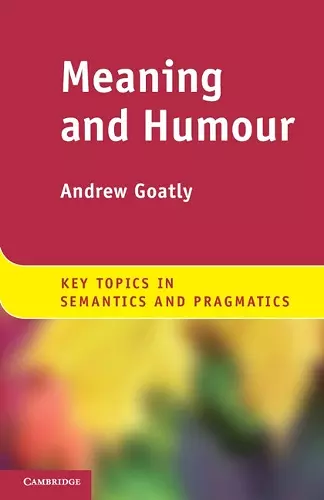Meaning and Humour
Format:Paperback
Publisher:Cambridge University Press
Published:10th May '12
Currently unavailable, and unfortunately no date known when it will be back

Introduces and critiques a wide range of semantic and pragmatic theories in relation to humour.
How are humorous meanings generated and interpreted? Understanding a joke involves knowledge of the language code (a matter mostly of semantics) and background knowledge necessary for making the inferences to get the joke (a matter of pragmatics). This book introduces and critiques a wide range of semantic and pragmatic theories in relation to humour, such as systemic functional linguistics, speech acts, politeness and relevance theory, emphasising not only conceptual but also interpersonal and textual meanings. Exploiting recent corpus-based research, it suggests that much humour can be accounted for by the overriding of lexical priming. Each chapter's discussion topics and suggestions for further reading encourage a critical approach to semantic and pragmatic theory. Written by an experienced lecturer on the linguistics of the English language, this is an entertaining and user-friendly textbook for advanced students of semantics, pragmatics and humour studies.
'Humour is not always easy to understand, semantics is hard to grasp. Adroitly enunciating, Andrew Goatly mixes and matches, with a careful touch, and both teaches and captivates his readers.' Richard J. Alexander, Vienna University of Economics and Business
'Goatly's work is an interesting, innovative, and useful book. It is the first systematic consideration of the linguistic phenomena of humor. I would recommend it for students and scholars alike.' Salvatore Attardo, Editor-in-Chief, HUMOR: International Journal of Humor Research and Encyclopedia of Humor Studies
ISBN: 9780521181068
Dimensions: 211mm x 138mm x 19mm
Weight: 520g
380 pages